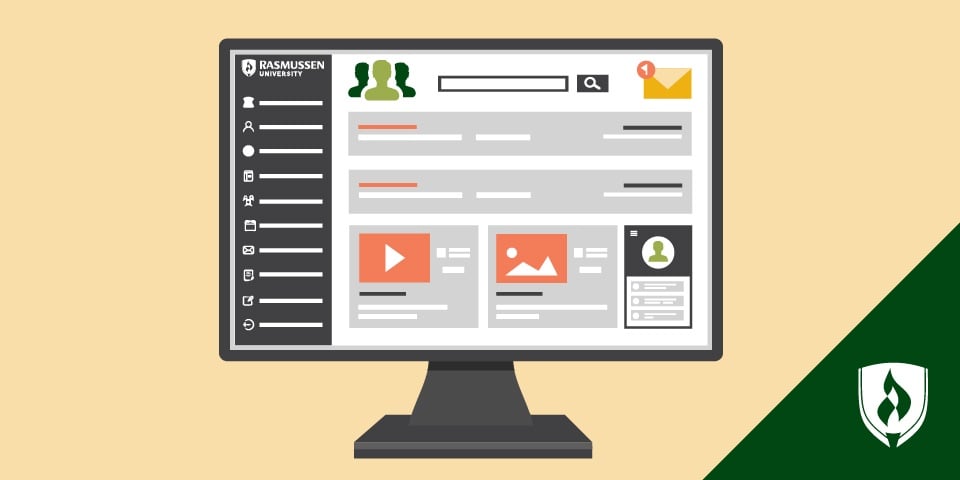
There was a time when having a MySpace account automatically put you in the computer-literate category. That was when clouds only existed in the sky and “electronic mail” was a newfangled way to stay in touch.
But the digital dictionary is one that never stays static for long. Even your great aunt Edna is on Facebook now, and your kid nephew can run a tablet better than you ... and he's only 3. So, those “skills” are no longer very valuable in a society that demands some level of digital savvy.
We get it. With so many new devices, systems and programs, it’s incredibly hard to even know where to start. If digital technology began as a snowflake, it’s now an avalanche, and it’s really hard not to get confused in the flurries. That’s why we’ve created this guide to re-vamping your digital literacy and moving yourself forward to digital fluency.
Handling change
"Technology may feel like it’s constantly changing, but we shouldn’t be overwhelmed by this,” says Brooks Doherty, general education dean at Rasmussen College.
Doherty points out that confidence comes with practice and fluency with accepting we have to be part of the creation of digital content and not just users. “The best way to evolve from a digitally literate learner to a digitally fluent learner is to push yourself to create projects and express ideas through digital tools."
Honing the skills
Just like learning a spoken language, one of the best ways to become fluent is to immerse yourself in it. Start by reading through our guide of digital tutorials, tips and tools for each skill set.
1. Basic computer skills
You’re probably not typing one finger at a time anymore, but what’s considered “basic” today is much different than only a few years ago.
- Writing emails is expected; doing it well is an art.
- Maybe it’s not essential, but knowing your keyboard commands definitely helps you come across as digitally-literate. Check out these commands for Macs and these if you use a PC.
- Still using PowerPoint for presentations at work or school? Vamp up your performance and impress professors and peers by using Prezi.
2. Advanced computer/tech skills
The words “advanced” and “computer skills” don’t have to be synonymous with “impossible.” Like any other skills, advanced skills are acquired with the right tools, education and will to learn.
- Curious about coding? Get your feet wet with codecademy, a free interactive website dedicated to teaching the basics of coding.
- Is your laptop lulling? Is your tablet too slow? Computers don’t have brains, but they do have memory … and that’s what allows them to perform multiple tasks simultaneously. It’s extremely valuable to know how to upgrade random access memory (RAM).
3. Online safety
You probably wouldn’t leave your car door unlocked on purpose, so be purposeful in protecting your computer and keeping your personal information private.
- Gadgets need vaccines too. Learn about virus protection with this video tutorial.
- It sounds like black magic, but encrypting your hard drive can be pretty simple with a simple how-to video to help you out.
4. Content evaluation
You’ve got to know how to determine whether an article or site is trustworthy, for your own sake and for that of your friends, who receive all those forwarded emails. (It gets even more serious if you’re using bogus content for an academic paper or work-related duty!
- Wondering if a website is safe? Run a Google SafeBrowse report. Enter “https://google.com/safebrowsing/diagnostic?site=” before the site address.
- How do you know if an article or webpage is credible? Look for these six credibility indicators (https://uknowit.uwgb.edu/page.php?id=30276).
5. Online job search
Anyone can search for anything and come up with something. But smart job searching takes a bit of know-how and the right resources.
- Use job-posting websites such as Indeed, SimplyHired and Monster, and be sure you check out a potential employer’s credibility before you offer up any of your personal information to a job posting.
- Use common sense. Search for businesses in your area of interest and check for job postings on their website.
- Don’t forget to network. Connect with potential employers on LinkedIn and follow like-minded companies to show your interest.
You’re not done quite yet
Now that you’ve taken a step forward, don’t take two back. Stay on your toes, work smart, and be a life-long learner of digital skills. While you’re at it, don’t forget to self-evaluate just to be sure you’re on the right track.
“Frequent evaluation is important because it keeps us abreast of our ability to use digital tools to express ourselves,” Doherty says.
Why not take a moment right now to see where you stand? Go through our brief digital literacy assessment and see how you rank today. Then it’s up to you if you want to be a life-long digital learner or you’re happy with being left behind.




